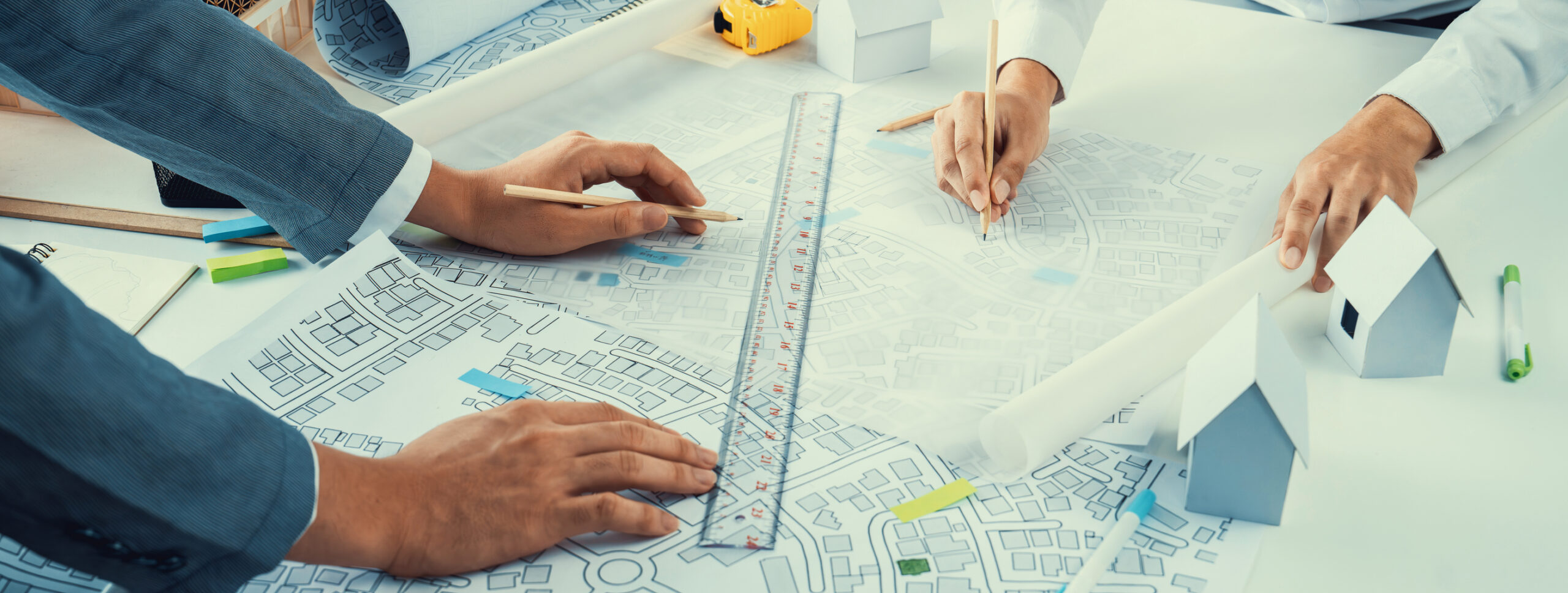Over the past decade, ESG (Environmental – Social – Governance) has become the global standard for evaluating corporate sustainability and responsibility. At the same time, Feng Shui—an ancient Eastern philosophy—has been reinterpreted for modern workplaces as part of a sustainable design strategy.
In a previous discussion on modern Feng Shui in office interior design, Mr. Phạm Quang Tuấn Huy, CEO of IDD Decor, architect, and Feng Shui researcher, emphasized the practical impacts of Feng Shui on workplace performance and sustainability. Among these, one of the most significant values lies in its direct contribution to corporate sustainable development.
So, are modern Feng Shui and ESG connected? The answer is yes—and the connection is becoming increasingly evident, particularly among multinational companies operating in Asia, including Vietnam.
1. Key Concepts: What Are Modern Feng Shui and ESG?
1.1 Modern Feng Shui
Modern Feng Shui is no longer viewed as a belief system—it is the art of spatial arrangement based on principles that:
-
Optimize light, air, and energy flow,
-
Create a sense of balance, calm, and productivity.
Elements such as seating orientation, natural lighting, greenery, material choice, and open layouts are central to modern Feng Shui. Notably, these principles align closely with contemporary standards for ergonomic and human-centered office design.
1.2 ESG – The Framework for Sustainable Development
ESG is a framework used by investors, global organizations, and rating agencies to assess whether a business truly operates sustainably. It comprises three main pillars:
-
E – Environmental: reducing emissions, saving energy, using recycled materials.
-
S – Social: employee health, well-being, fairness, and community engagement.
-
G – Governance: transparency, effective management, and smart organizational structures.
2. The Connection Between Modern Feng Shui and ESG
2.1 Feng Shui and the Environmental Factor (E)
Modern Feng Shui encourages:
-
Maximizing natural daylight instead of artificial lighting,
-
Incorporating greenery to balance airflow and improve indoor air quality,
-
Using natural or recycled materials such as veneer wood, bamboo, rattan, or natural stone.
These principles directly support ESG’s Environmental goal: reducing CO₂ emissions, conserving energy, and minimizing the use of virgin resources.
According to the World Green Building Council, offices designed with natural light and greenery can cut energy costs by 20–30% annually.
2.2 Feng Shui and the Social Factor (S)
A Feng Shui–inspired workplace emphasizes:
-
Organized, open spaces – reducing stress and enhancing focus,
-
Balanced lighting – minimizing fatigue and protecting vision,
-
Flexible zoning – strengthening team collaboration,
-
Supportive seating – giving employees a sense of stability and security.
These features directly contribute to mental well-being, collaboration, and job satisfaction—core metrics within ESG’s Social pillar.
A study by Unispace shows that offices designed following Feng Shui principles can improve employee health and satisfaction by up to 25%.
2.3 Feng Shui and the Governance Factor (G)
Modern Feng Shui has a significant influence on space planning, functional zoning, and workflow design within corporate environments.
While it doesn’t interfere with business operations or strategy, it affects how spaces connect, interact, and support one another—enhancing team coordination and operational clarity.
A well-balanced office layout fosters transparency, effective communication, and smoother management, ultimately strengthening corporate governance.
3. Modern Feng Shui: An Extension of the ESG Strategy
Modern Feng Shui can be considered an extension of ESG implementation, helping companies achieve sustainability in a cultural, intuitive, and human-centered way.
Through design elements such as natural lighting, greenery, eco-friendly materials, efficient circulation, and leadership positioning, modern Feng Shui not only creates harmonious environments but also fulfills the goals of all three ESG pillars.
-
The Environmental aspect is reinforced through sustainable energy use and natural materials.
-
The Social aspect is strengthened by promoting well-being and connectedness.
-
The Governance aspect is expressed through transparent layouts and clear leadership visibility—the “commanding position” principle in Feng Shui.
Rather than replacing ESG, Feng Shui complements and amplifies its impact—aligning sustainability with cultural harmony and organizational efficiency.
Conclusion: A Practical and Strategic Connection
Modern Feng Shui does not contradict ESG; it enhances and supports it across all three dimensions:
-
For Environmental (E): it saves resources and reduces energy consumption.
-
For Social (S): it improves employee well-being and engagement.
-
For Governance (G): it promotes clarity, fairness, and open leadership.
For multinational companies operating in Vietnam, integrating modern Feng Shui into ESG strategy represents not just a blend of East and West, but a smart, sustainable approach to designing humane, efficient, and future-ready workplaces.
Looking for an ESG and Feng Shui workspace assessment?
Let IDD Decor accompany your business in creating an ESG-aligned, high-energy, and sustainable office for long-term success.
Insights shared by Mr. Phạm Quang Tuấn Huy
IDD Decor – Office Interior Design – Behind the Door Awaits the Journey to Success
🏢 Address: Doxaco Building, 307B Nguyen Van Troi, Tan Son Hoa Ward (formerly Ward 1, Tan Binh District), Ho Chi Minh City
📞 Hotline: 0896 640 986
🌐 Website: idddecor.com
🔗 LinkedIn: IDD Decor Vietnam









